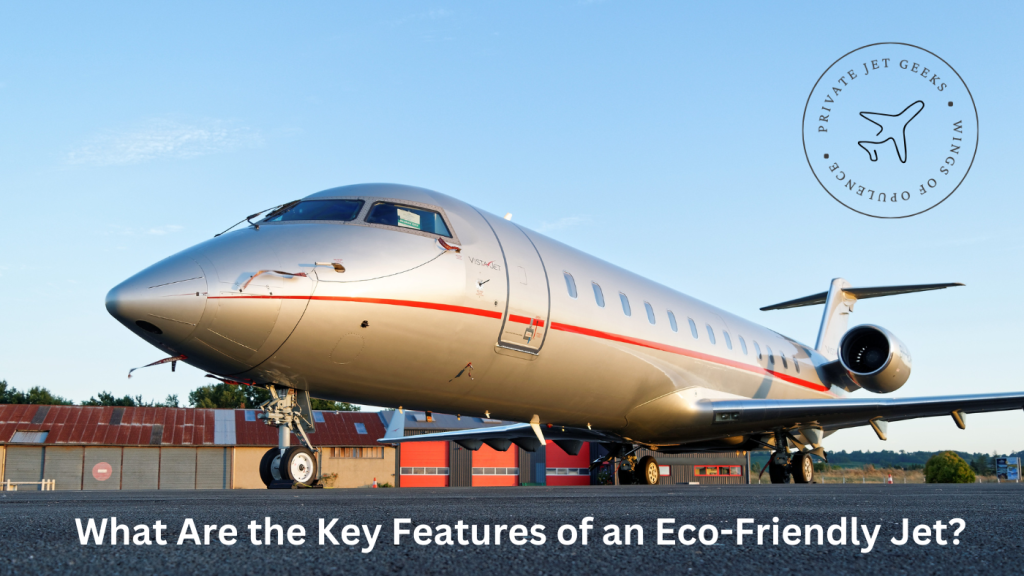The need for air travel is greater than ever in the modern, globalized world. It should come as no surprise that millions of people use airplanes for daily travel given their ease and speed.
However, there’s an environmental cost associated with this convenience. The aviation sector is frequently criticized for its carbon footprint, especially with regard to private jet travel.
But things are starting to change. Once thought to be one of the main contributors to high emissions, business aviation is currently setting the standard for environmentally friendly air travel options.
Today, the world of private aircraft is about more than just exclusivity and luxury it’s about driving change for a more environmentally friendly future.
At the forefront of this change is business aviation, which is implementing cutting edge techniques and technologies to lessen its environmental effect.

What is sustainable aviation fuel?
Because of the material and technology used in its production, sustainable aviation fuel (SAF), which powers airplanes, is made similarly to conventional jet fuel but has a lower carbon footprint.
Modern aircraft can be powered by sustainable aviation fuels as a drop in fuel, which can be combined with conventional jet fuel in a ratio of up to 50% without changing the aircraft’s delivery, storage, or fuel systems.
Many of the current renewable resources available can be used to produce SAF, such as:
- Wood leftover from forests and energy crops, such as algae and quickly growing plants,
- Grains, oils, and greases such as corn oil seeds
- agricultural leftovers
- streams of municipal solid waste
- Wet wastes, like sludge from wastewater treatment plants and manure
What makes SAF so important?
Because jet fuel has a high energy density relative to its weight, commercial flight has been made possible.
We rely on this kind of fuel in aviation because there are currently no other practical means of swiftly moving large numbers of people over great distances.
The carbon footprint of an economy ticket on a London to San Francisco return flight is almost one tonne of CO2e.
We must take action to lower aviation’s carbon emissions because it is predicted that by 2050, there will be over 8 billion passengers flying.
Advantages of eco-friendly aviation fuel
1: Lower greenhouse gas (GHG) emissions during the life cycle.
Depending on the fuel and technologies used to produce it, the ability of SAF to significantly reduce lifecycle GHG emissions is the main benefit of using it in private jets.
When compared to fossil fuels, the use of SAF has been demonstrated in certain situations to reduce total lifecycle carbon dioxide (CO2) emissions by up to 80%.
There is a chance to achieve net negative CO2 emissions with alternative cutting-edge SAF production techniques.
As the aviation sector contributes between 9% and 12% of the nation’s transportation-related greenhouse gas emissions, reducing its carbon intensity is an especially important way to reduce these emissions.
2: Offer more advantages for the environment
The use of SAF in aircraft provides a number of additional advantages for the planet’s health and well being beyond just lowering GHG emissions.
SAF can safeguard the quality of Earth’s air and water by reducing emissions of sulfur oxides (SOx) and nitrogen oxides (NOx), two major atmospheric pollutants that endanger human health and ecosystems, in addition to CO2 emissions.
The most notable environmental advantages are offered by the renewable resources that supply SAF.
For instance, generating SAF from wet wastes reduces pollutants on watersheds and prevents dangerous methane gas from entering the atmosphere.
In addition, a few other biomass crops that are utilized to make SAF have the potential to reduce erosion, enhance biodiversity, increase water quality and quantity, and store carbon in the soil.
3: Support populations that grow fuel to maintain their standard of living economically
The financial health of rural farming communities can be effectively supported by growing biomass crops for use in SAF production.
In the US, for example, farmers can increase soil quality and minimize nutrient losses by selling SAF feedstocks to potential buyers during their off seasons.
Larger-scale SAF feedstock crops can be grown in some nations, as can other feedstocks like municipal waste, on land that isn’t suitable for food crops.
The economic advantages of SAF production, which do not compromise local food production capacity as other job alternatives do, can be extremely beneficial to many of these countries.
4: Boost the performance of the aircraft
While using SAF in aircraft has direct benefits for the environment, it also improves aircraft performance, which is something that is sometimes overlooked.
sustainable aviation fuels burn cleaner in engine combustion due to their lower aromatic content, which improves aircraft performance over conventional jet fuel.
Additionally, SAF lessens the amount of hazardous compounds released locally near airports during takeoff and landing.
Sustainability in Private Air Travel
Optimizing sources of energy, the use of energy, aircraft operation, and aircraft design are ways that private charter businesses and other aviation organizations can enhance sustainability.
1. Technology on the Flight Deck
Enhancing the aircraft’s technology is one way private aviation companies are promoting sustainability.
Flight deck systems that maximize the pilot’s capacity to interact with multiple systems and visualize their flight path are being implemented by private aviation charter companies.
The time between power up and takeoff is shortened by new flight deck technology, which also helps pilots land on time and cut down on travel time.
As a result of less waste from excess fuel burned during extended processes, fuel efficiency is ultimately increased.
2. Route Reduction
By operating on environmentally conscious routes, private charter businesses can also contribute to sustainability. Pilots can plan and execute routes that use the least amount of fuel thanks to innovative flight deck technology.
Also, flight schedules can be optimized by charter operators to guarantee that every departure can happen as scheduled with the least amount of idling, repositioning, and consequent fuel waste.
3. Production and Management of Aircraft
By working together with manufacturers who are creating aircraft with features like increased fuel efficiency and employing ethical manufacturing methods, private charter companies are also enhancing sustainability.
This entails constructing with environmentally friendly materials and employing eco-friendly production and material procurement techniques.
Once they have the aircraft, charter firms can manage each jet with an emphasis on sustainability.
In addition to choosing effective flight paths, private charter operators can maintain the effectiveness of each aircraft for the duration of its life through maintenance.
A consideration for sustainability is also present at the end of an aircraft’s lifecycle. Businesses are recycling as much of the decommissioned aircraft as they can after removing them from service before their efficiency falls too far.
Conclusion
The future of private jet travel is changing to become more ecologically friendly and sustainable.
The sector is aggressively implementing strategies to reduce its environmental effects, such as fuel economy and carbon offset programs.
Private jet passengers can experience the unmatched luxury of flying with less of an environmental impact while also helping to create a more sustainable aviation environment by making wise decisions and encouraging green travel practices.






